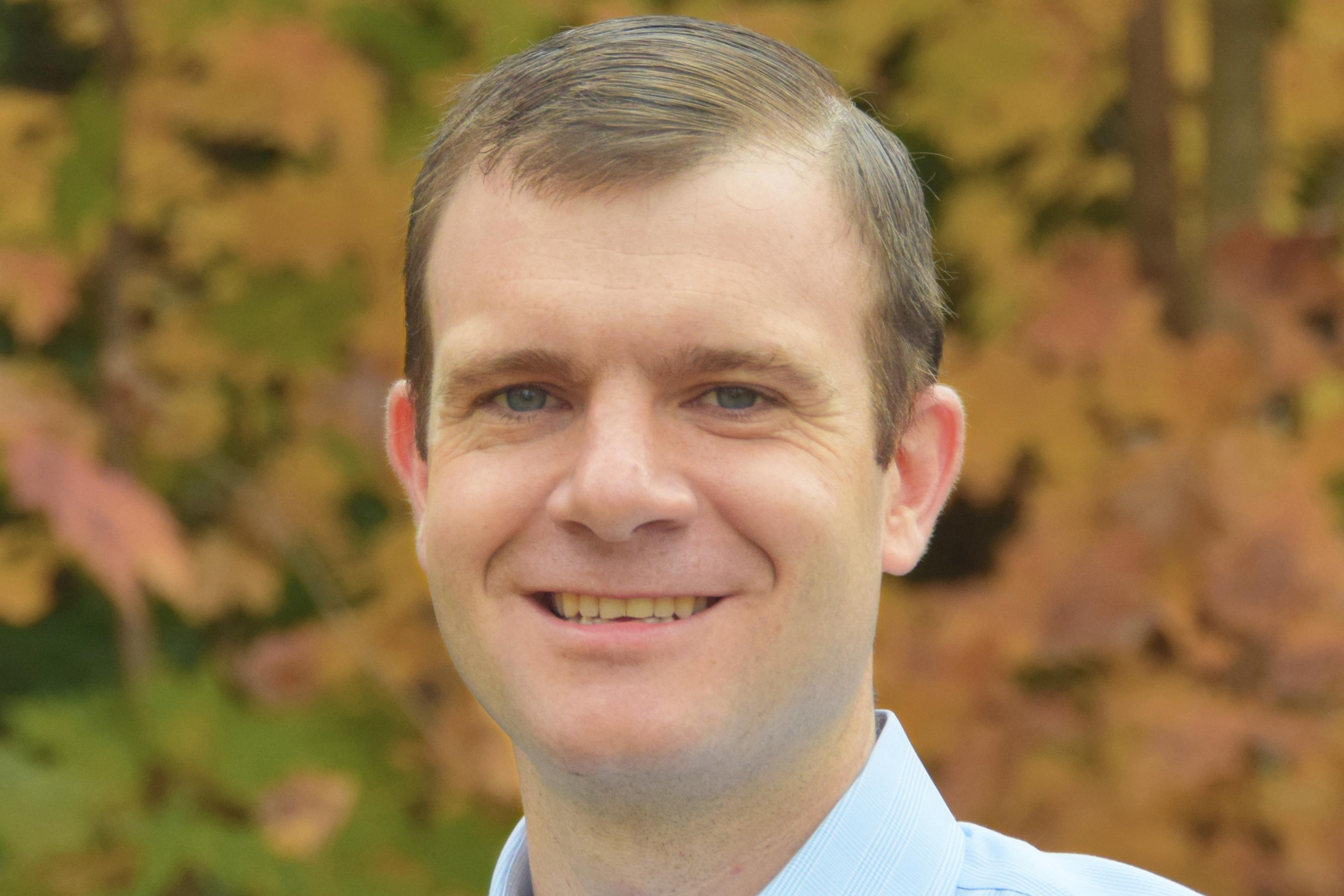Driven to Make an Impact

Ben Tiede ’05
Ben Tiede ’05, a former double-major in biology and biochemistry & molecular biology, strives to make an impact as chief of staff for the vice chairman at Johnson & Johnson, one of the world’s leading healthcare and pharmaceutical companies. In his role, he communicates and engages with business leaders and policymakers to shape key healthcare issues that help people around the world.
Can you speak to how Dickinson’s useful liberal-arts education helped you along your career path?
Like many, my career path has not followed a straight line. While I will always consider myself a scientist, I no longer work in a laboratory. I’ve had the opportunity to work in a number of areas and functions, including global health, public policy, communications, advocacy, business strategy and more. Having a well-rounded liberal-arts education positioned me to succeed in a world where knowing how to think and approach a problem is much more important than deep expertise on any given topic.
What was your favorite activity/organization at Dickinson?
A fair amount of my free time at Dickinson was spent on or near the basketball court. As my friends and I grew busier each year, we always found time on Friday nights to play a pickup game. We also spent a lot of time playing intramurals, coaching at the local YMCA and supporting the Dickinson women’s basketball team. What started as a small group of us cheering on some of our friends turned into a fully packed Kline Center by the time we were seniors.
What jumps out as a great memory from your time at Dickinson?
I’d have to say the day I met my future wife [Lauren Tammany Tiede ’05] on the Adirondack chairs outside Old West. We instantly connected over our love for Philadelphia sports, and I was extremely impressed with her knowledge of mid-90’s Phillies trivia. Four years later, we got engaged on those very same chairs.
How do you stay involved with/support Dickinson? Why do you think it’s important?
My time at Dickinson provided so many opportunities to me, and I feel it’s a responsibility to pay that forward for the next generation of students. I helped recruit several Dickinson students to my graduate school program at Princeton, continue to donate every year, and always make time for fellow alumni who have contacted me via LinkedIn or other channels.
How did you get interested in your work, and what about it excites you most?
Being able to make an impact is what drives and excites me the most. I always wanted to work at a pharmaceutical company so that I could create new medicines or vaccines that would help people. Ultimately, I left the field of research because I felt there was a need for people with scientific backgrounds who could engage and communicate with business leaders and policymakers. Fortunately, I’m still able to work toward my goal of helping others, whether it has been through developing Johnson & Johnson’s approach to providing access to medicine in developing countries, launching a crowdfunding platform for nonprofit organizations working in public health or shaping our policies on key healthcare issues around the world.
What does your current work entail?
In my most recent role, I work as the chief of staff for Johnson & Johnson’s vice chairman who oversees our pharmaceutical, consumer, supply chain, information technology, and health and wellness groups. The job is a bit of a "jack-of-all-trades." On any given day, I may be managing a special project that cuts across our business, drafting a keynote speech, working with teams as they develop their business strategies or serving as a thought partner and adviser as we evaluate new opportunities.
What is the most challenging part of your work?
I’m privileged to work at one of the world’s leading healthcare companies. I would say one of the most challenging things is to develop policy solutions that are sustainable and balance all the competing priorities in our health system. Figuring out how we as a society better provide patients with affordable, high-quality care while at the same time encouraging innovation to address unmet medical needs is fundamental to our collective progress.
What comes to mind as something unforgettable that you’ve done since you graduated?
My wife and I took an unforgettable trip to Vietnam several years ago. We had so many unique experiences, from hiking and doing a home-stay in the mountainous region near the Chinese border, to watching the sunrise on a junk boat in scenic Halong Bay, to eating street food in Ho Chi Minh City, to touring the Cu Chi tunnels. We so appreciated being able to immerse ourselves in the food, culture and history of what is an amazingly vibrant and dynamic country.
If you could have dinner with anyone famous, living or dead, who would it be?
Living would be Barack and Michelle Obama. Dead, I’d have to say Ben Franklin.
You just built a time machine: where and when do you go?
Setting aside far too many historical atrocities to prevent, I would say 1968 in the United States. I’ve always been fascinated by how our country dealt with that period of great unrest and civic engagement.
If you could change one thing about your life, what would it be?
Slow things down and be able to take more time to appreciate the moments that matter.
TAKE THE NEXT STEPS
Published December 12, 2018